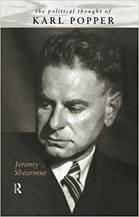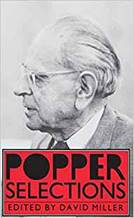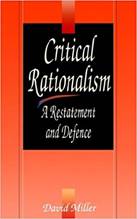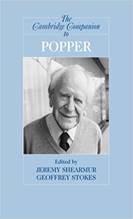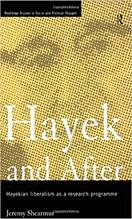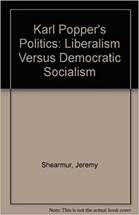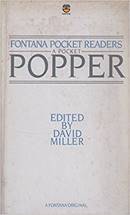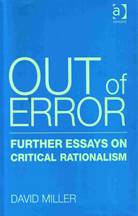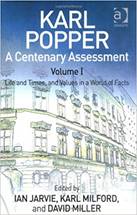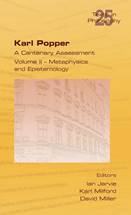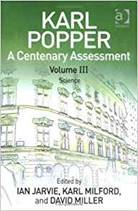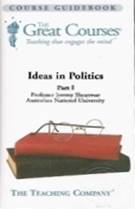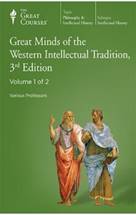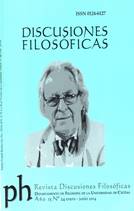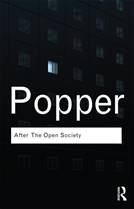
We have the honour to invite you to the Zagreb Popper Forum 2018
Karl Popper Today
|
Program leaflet: Download from here...
Organized by:



Philosophical Faculty, University of Zagreb
Faculty of Political Science, University of Zagreb
Institute of Philosophy, Zagreb
(We would like to acknowledge our gratitude to The Karl Popper Charitable Trust for its contribution in the organization of the Forum)
Invited Lecturers:
Jeremy Shearmur (Emeritus Fellow, School of Philosophy,
Australian National University, Canberra)
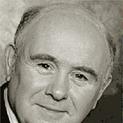 Jeremy Shearmur was educated the London School of Economics (University of London), where he also worked for eight years as assistant to Professor Sir Karl Popper. He taught philosophy at the University of Edinburgh, Political Theory at the University of Manchester, was Director of Studies at the Centre for Policy Studies in London and was then a Research Associate Professor at the Institute for Humane Studies, George Mason University in Virginia. He then taught Political Theory and subsequently Philosophy at the Australian National University. He is the author of The Political Thought of Karl Popper and Hayek and After, and joint editor of H. B. Acton’s The Morals of Markets and related essays, Popper’s After the Open Society, and The Cambridge Companion to Popper. He has published around 100 articles, contributions to books etc. His edition of F. A. Hayek’s Law, Legislation and Liberty will appear in Hayek’s Collected Works, while a collection of his papers, Between Popper and Hayek is to be published in Iran. He was also invited to lecture for The Teaching Company. Several of his lectures appear in their Great Minds of the Western Intellectual Tradition. His lecture series Ideas in Politics is now no longer available from The Teaching Company but is widely available on the internet.
Jeremy Shearmur was educated the London School of Economics (University of London), where he also worked for eight years as assistant to Professor Sir Karl Popper. He taught philosophy at the University of Edinburgh, Political Theory at the University of Manchester, was Director of Studies at the Centre for Policy Studies in London and was then a Research Associate Professor at the Institute for Humane Studies, George Mason University in Virginia. He then taught Political Theory and subsequently Philosophy at the Australian National University. He is the author of The Political Thought of Karl Popper and Hayek and After, and joint editor of H. B. Acton’s The Morals of Markets and related essays, Popper’s After the Open Society, and The Cambridge Companion to Popper. He has published around 100 articles, contributions to books etc. His edition of F. A. Hayek’s Law, Legislation and Liberty will appear in Hayek’s Collected Works, while a collection of his papers, Between Popper and Hayek is to be published in Iran. He was also invited to lecture for The Teaching Company. Several of his lectures appear in their Great Minds of the Western Intellectual Tradition. His lecture series Ideas in Politics is now no longer available from The Teaching Company but is widely available on the internet.
David Miller (University of Warwick, Coventry, United Kingdom)
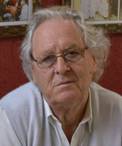 For almost forty years David Miller taught logic, and some other things, at the University of Warwick. He has been a visiting professor at universities and research institutes in Argentina, Brazil, Colombia, Hungary, India, Italy, Mexico, Thailand, and the USA, and has lectured in many other countries. His publications include Popper Selections (Princeton 1983; translated into 12 languages), of which he was the editor; Critical Rationalism: A Restatement & Defence (Open Court 1994); Out of Error (Ashgate 2006; paperback edition, Routledge 2017); and Karl Popper: A Centenary Assessment (Ashgate 2006; paperback edition, College Publications 2016), which he edited in collaboration with Ian Jarvie and Karl Milford.
For almost forty years David Miller taught logic, and some other things, at the University of Warwick. He has been a visiting professor at universities and research institutes in Argentina, Brazil, Colombia, Hungary, India, Italy, Mexico, Thailand, and the USA, and has lectured in many other countries. His publications include Popper Selections (Princeton 1983; translated into 12 languages), of which he was the editor; Critical Rationalism: A Restatement & Defence (Open Court 1994); Out of Error (Ashgate 2006; paperback edition, Routledge 2017); and Karl Popper: A Centenary Assessment (Ashgate 2006; paperback edition, College Publications 2016), which he edited in collaboration with Ian Jarvie and Karl Milford.
Forum Description:
According to the Freedom House and Economist Intelligence Unit, in the last decade the number of the world democracies has been shrinking. Popular vote in the number of countries have led to the rise of strongmen, who have used “democratic” and often invisible methods to crush the usual democratic checks and balances of political power. Some scholars have blamed neoliberalism. The others have noted the growing rift between liberalism (insistence on rights to avoid tyranny of majorities) and democracy (popular vote), the rift between two necessary ingredients for the functional democracy.
The second social concern today is how to handle abundance of available information. There is, again, the rift between the rational and the social, the rift between the types of decision making/cognitive power(s), problems raised by behavioral economics, but also according to the types of logic of decision making.
These are just two trends that make Popperian philosophy vital again. Karl Popper has been one of the most notable critics of totalitarian ways of thinking, and his philosophy has been instrumental in transforming ways and mores in ex-communist countries, legitimizing transition to their democracies. But present currents in developed democracies, and even more in the newer ones, have shown how fragile democracies may become, and how usual requirements for democracy may be insufficient if they are not accompanied by more stringent political and philosophical safeguards.
Popperian philosophy is usually split into its political and scientific “side”. In the political context, vitality of Popperianism is obvious. But its scientific side should not be neglected in the process. The amount of data gathered by various agencies for the number of purposes, makes its scientific side vital too. Should we rely of Bayesian approaches in decision making? What is the role of Popperian propensity theory today?World renowned guests and ex-assistants of Karl Popper (at LSE), along with Croatian Popper scholars will explore contemporary vitality of both sides of Popperian philosophy. We hope the audience may join in the fruitful discussion.
Programme:
Thursday, November 15, 2018
Popper Zagreb forum 2018
Venue 1. Faculty of Political Sciences, University of Zagreb, Lepušićeva ul. 6
Lecture room A:
10:00 David Miller: “Putting Science to Work”
11:00 Jeremy Shearmur: “Karl Popper and Politics Today“
12:30 Discussion
13:30 Lunch break
15:30 (Lecture room D) Contributions from invited participants (Puhovski, Lalić, Polšek, Kulenović, Ivanković, Kurelić, Jolić, Kožnjak…) and students
17:00 Coffee Break
17:30 (Cont…) Discussion on the vitality of Popperian philosophy today
Friday, November 16, 2018
Public Lecture by prof. Jeremy Shearmur
Venue 2. Philosophical Faculty, University of Zagreb, Ivana Lučića 3
(Lecture Hall #7)
09:30 Jeremy Shearmur: “Popper’s Critical Rationalism”
10:30 Discussion with scholars at FFZG
11:00 A short walk and a visit to the Institute of Philosophy
Lecture by prof. David Miller
Venue 3. Institute of Philosophy, Vukovarska 54
11:30 David Miller: “Deductivist Decision Making”
12:45 Discussion with scholars at the Institute
Bibliographies of our guests:
